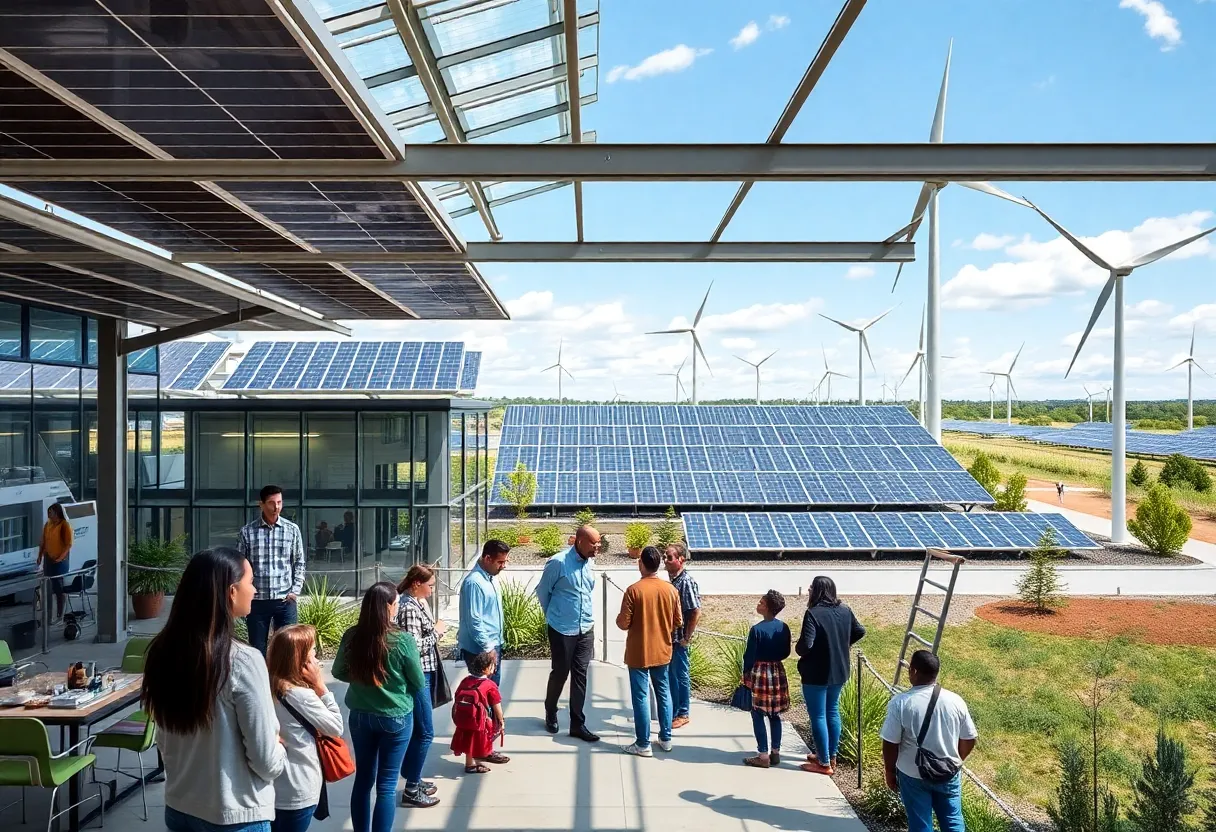News Summary
Brad Ives has been appointed as the executive director of LSU’s Institute for Energy Innovation. The institute, funded by a $25 million Shell donation, aims to address challenges in the energy sector, focusing on decarbonization, carbon sequestration, and energy resilience. Under Ives’ leadership, the institute will also prioritize environmental justice and community engagement while pushing for advancements in renewable energy research.
BATON ROUGE, Louisiana – In a significant move for the energy sector, Brad Ives has been appointed as the executive director of LSU’s Institute for Energy Innovation, which was established in 2020 with a $25 million donation from Shell. The institute is committed to advancing research aimed at tackling the pressing challenges facing the energy sector, specifically focusing on decarbonization and innovative energy solutions.
The institute’s research agenda encompasses a variety of critical topics such as the effects of extreme winds on solar installations, assessing the risks and benefits of carbon sequestration, identifying optimal locations for wind farms in coastal Louisiana, and exploring innovations in battery storage. These areas of study are crucial as the energy transition continues to take shape in the state and across the nation.
Brad Ives, a North Carolina native with a diverse professional background in law, investment banking, renewable energy, and public policy, spearheads this initiative. His leadership aims to ensure that the energy transition is achieved in a “fair and just” manner, reinforcing key goals that include advancing research in technology, public policy, economics, and community engagement.
In addressing the energy transition, Ives shared insights on the implications of the “One Big Beautiful Bill Act” and its potential impact on the sector’s shift towards sustainability. However, he noted that the energy transition in Louisiana is likely to progress slowly due to recent federal policy changes. Unlike the U.S. domestic market, global market dynamics, particularly in the European Union, are primarily driving this transition. The EU is set to implement a carbon border adjustment mechanism, commonly referred to as a carbon tariff, by 2026, which is expected to influence various industries.
Amidst concerns regarding the funding sources of the institute, Ives addressed skepticism from critics questioning its commitment to a lower carbon future. He articulated that partnerships with industry illustrate a recognition of their role in climate change and an eagerness to invest in research that seeks solutions. Environmental justice is also a cornerstone of the institute’s mission, as evidenced by the allocation of 20% of the Shell grant specifically for this purpose.
The institute’s focus on long-standing justice issues particularly targets fenceline communities that have historically borne the brunt of industrial activity. Ives emphasized the need to ensure that the ongoing energy transition does not jeopardize job security for workers in the oil and gas sector, advocating for a transition that embraces their role while promoting new opportunities. With Louisiana’s abundant natural resources, Ives believes the state has the potential to emerge as a leader in the energy innovation landscape.
A major aspect of the institute’s research agenda prioritizes carbon sequestration, viewed as a vital technology for combating global emissions. The focus will be on ensuring that any carbon sequestration efforts conducted are safe and effective, thereby minimizing any potential risks associated with the practice.
Recently, the institute awarded several grants, including a project that aims to gauge public perceptions of the energy sector through surveys. Misinformation surrounding renewable energy, especially concerning solar power, poses a significant challenge that the institute seeks to counteract through its outreach and educational initiatives.
Aligning with LSU’s emphasis on energy as one of its five core research areas, the Energy Institute builds upon existing programs such as the Center for Energy Studies and integrates various research efforts. The institute is poised to enhance collaboration between faculty, industry, and public agencies to improve energy-related advancements. Its goals also extend to supporting data provision and analyses essential for state planning and hazard assessments in the energy sector.
Additionally, the institute aims to explore growth areas such as energy resilience, carbon management, and economic opportunity, while also initiating educational programs offering scholarships for teachers to promote energy education. Together, these initiatives signify LSU’s commitment to furthering research and innovation in energy solutions and facilitating the state’s transition to a more sustainable energy future.
Deeper Dive: News & Info About This Topic
- LSU Solar Power Shelters – LSU Reveille
- Wikipedia: Renewable Energy
- LSU Launches Energy Institute – Business Report
- Google Search: Energy Innovation
- LSU Launches Energy Institute – Biz New Orleans
- Google Scholar: Energy Research
- LSU Poised for Leadership with Energy Institute – GovTech
- Encyclopedia Britannica: Energy Sector
- LSU Investing in Energy Innovation Projects – Business Report
- Google News: Energy Transition

Author: STAFF HERE NEWORLEANS WRITER
The NEW ORLEANS STAFF WRITER represents the experienced team at HERENewOrleans.com, your go-to source for actionable local news and information in New Orleans, Orleans Parish, and beyond. Specializing in "news you can use," we cover essential topics like product reviews for personal and business needs, local business directories, politics, real estate trends, neighborhood insights, and state news affecting the area—with deep expertise drawn from years of dedicated reporting and strong community input, including local press releases and business updates. We deliver top reporting on high-value events such as French Quarter Festival, New Orleans Jazz & Heritage Festival, and Essence Music Festival. Our coverage extends to key organizations like the New Orleans Chamber of Commerce and Greater New Orleans, Inc., plus leading businesses in energy, healthcare, and education that power the local economy such as Entergy, Ochsner Health, and Tulane University. As part of the broader HERE network, including HEREShreveport.com, we provide comprehensive, credible insights into Louisiana's dynamic landscape.

